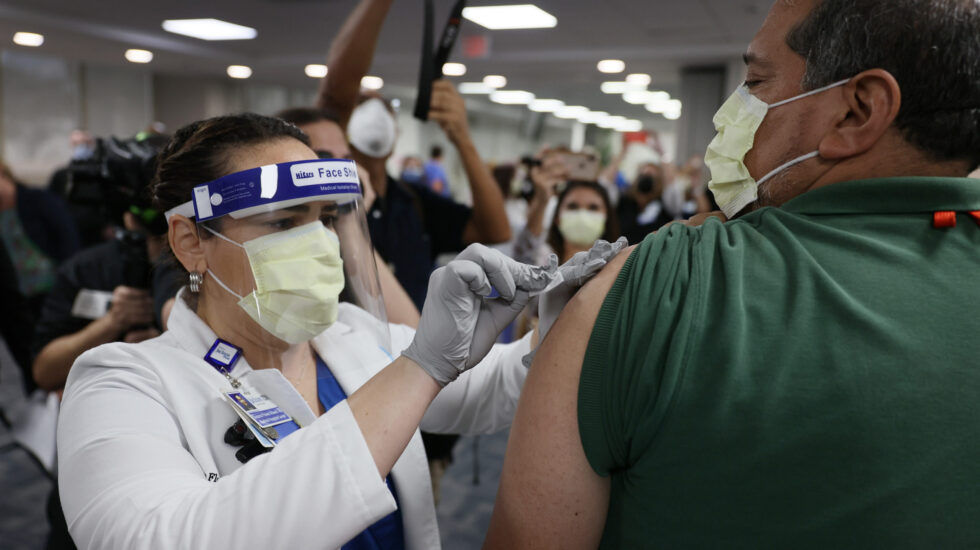Pfizer is expected to ask the Food and Drug Administration on Wednesday to approve a booster shot of its COVID-19 vaccine for all American adults.
According to The New York Times, the FDA is expected to authorize the extra shot quickly, “perhaps before Thanksgiving.”
The Times adds:
An advisory board of outside experts to the Food and Drug Administration voted against a similar request from Pfizer in mid-September. Instead, the committee recommended booster shots on an emergency basis for those 65 and older or at high risk of Covid-19 disease because of their medical conditions or jobs.
Those categories were still broad enough to cover at least 60 percent of the population. And some experts have argued the case for booster shots for the general population is stronger now, citing reasons ranging from more data from Israel to requests from some health practitioners to simplify the eligibility categories.
If given FDA authorization, American adults who received their vaccines more than six months ago would be eligible for an additional Pfizer jab.
The Washington Post provides additional context:
In mid-August, President Biden announced plans to make boosters available to all adults beginning the week of Sept. 20. But the administration backed off after receiving sharp criticism from many scientists and public health experts — including several of its own advisers — who said there was little evidence that young, healthy people needed the extra shot, especially when much of the world remained unvaccinated.
Since then, however, additional data has underscored the shots’ safety and shown more definitively that their protection does wane over several months.
Eric Rubin, editor in chief of the New England Journal of Medicine and an adjunct professor at the Harvard T.H. Chan School of Public Health, voted against authorizing Pfizer booster for all adults in September.
But The Post reports:
Since then, Rubin said, millions more people have gotten boosters in the United States and abroad, and “I have not heard of any safety signals. That really does change things.” Moreover, emerging data from Israel shows “good-size decreases in severe disease among booster recipients,” he said.
